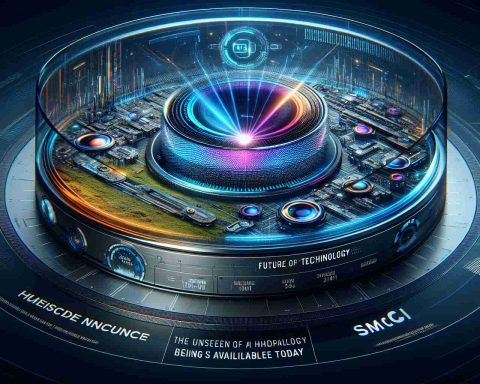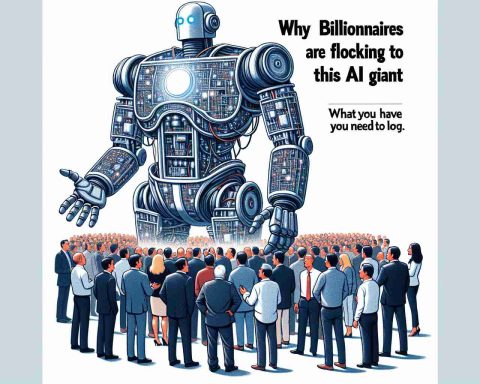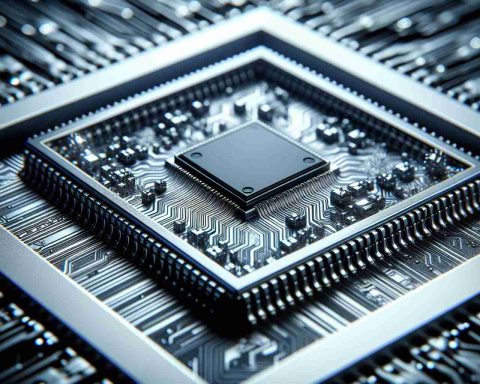Nvidia’s recent earnings announcement had investors on edge, yet the company’s shares demonstrated resilience, avoiding the major sell-off some feared. Despite an anticipated volatile response, Nvidia’s stock dipped only slightly, less than 2% in after-hours trading post-call.
The prior quarter saw Nvidia’s shares tumble 18% following modest earnings and revenue beats. This led to speculation of a repeat scenario, as year-end profit-taking by large investors loomed. However, Nvidia’s robust year-over-year revenue surge of 94%, reaching $35.1 billion, helped stabilize the stock amid these concerns. Moreover, positive projections for January, backed by confidence in their upcoming Blackwell platform, bolstered investor sentiment.
Nvidia’s CEO recently emphasized the transformative impact of AI, citing soaring demand for their Hopper chips and excitement surrounding Blackwell’s full production launch. This enthusiasm reflects the growing reliance on Nvidia’s technology for advanced AI model development.
While the stock demonstrated stability, fluctuations remain possible. Pre-call options trading indicated potential market shifts of up to 8%, suggesting high value volatility. This equates to a staggering market value shift comparable to that of the largest US companies.
Long-term investors have enjoyed remarkable returns, especially since the launch of ChatGPT in 2022, resulting in Nvidia’s stock appreciating by 800% and challenging Apple as the largest company. Impressively, analysts remain largely optimistic, with 90% rating it a buy.
Despite broader industry challenges, Nvidia continues to outperform, holding up indices like the PHLX Semiconductor Index amid sector downturns. As Nvidia navigates these dynamic waters, its future remains a focal point for investors and analysts alike.
How Nvidia’s AI Revolution is Reshaping Industries and Societies Worldwide
Introduction
In recent years, Nvidia has become a pivotal player in the technology world, particularly in the realm of artificial intelligence (AI). While their financial performance often attracts headlines, the transformative effects of Nvidia’s innovations reach far beyond stock market fluctuations. This article delves into the lesser-known impacts of Nvidia’s advancements on various industries, communities, and countries, and the potential implications for the future.
Nvidia’s AI Chips: Driving Change Across Sectors
Nvidia’s cutting-edge AI chips, such as the Hopper and the upcoming Blackwell platform, are not just powering tech innovations; they are revolutionizing entire industries. From healthcare and automotive to finance and entertainment, these chips enable complex AI models that are redefining how businesses operate and deliver value.
In healthcare, for instance, Nvidia’s technology facilitates faster and more precise diagnostic processes. AI-driven imaging analysis and predictive models for disease outbreaks are just a few examples of how Nvidia is enhancing medical outcomes. Meanwhile, in the automotive sector, Nvidia’s chips are central to the development of autonomous vehicles, promising safer roads and reduced traffic congestion in urban centers.
The Global Reach and Impact on Communities
Globally, Nvidia’s advancements are leveling the playing field by providing tools and platforms that empower developers and small enterprises to innovate with AI. For communities in developing countries, this democratization of technology means access to resources that were once the purview of large tech conglomerates. For instance, educational initiatives leveraging AI tools are improving literacy rates and offering remote learning solutions in underserved regions.
Controversies and Challenges: Navigating Ethical and Economic Concerns
While Nvidia’s technologies offer tremendous advantages, they also raise important ethical questions and societal challenges. The increasing reliance on AI prompts concerns about data privacy, security, and the potential for job displacement. Automation in industries such as manufacturing and customer service could lead to significant shifts in the job market, necessitating robust retraining programs and safety nets for affected workers.
The ethical use of AI, particularly regarding surveillance and personal data handling, poses another challenge. As AI systems become more integrated into daily life, ensuring responsible deployment and addressing biases in AI algorithms become paramount. These concerns call for a balanced approach that maximizes the benefits of AI while safeguarding individual rights and societal norms.
Advantages and Disadvantages: Weighing the Pros and Cons
Advantages of Nvidia’s AI advancements include increased efficiency, innovation potential, and economic growth. Companies harnessing Nvidia’s technology can develop products and services that improve quality of life, while economies benefit from new sectors and job creation linked to AI and tech developments.
However, disadvantages encompass the potential exacerbation of inequality if access to AI technologies is uneven. There are also risks of technological dependence and the ethical dilemmas presented by powerful AI capabilities. Balancing these factors is crucial for sustainable growth and equitable tech adoption.
Questions and Answers
1. How does Nvidia’s AI contribute to environmental sustainability?
Nvidia is at the forefront of developing energy-efficient AI chips that reduce the carbon footprint of data centers. This innovation supports global sustainability goals by lowering energy consumption in one of the most resource-intensive industries.
2. What role can governments play in addressing AI-related challenges?
Governments can lead by implementing policies that promote ethical AI use, investing in workforce retraining programs, and ensuring access to technology for all societal segments to mitigate economic disparities.
Conclusion
As Nvidia continues to drive AI innovation, its influence on global industries and communities will only grow. The challenge lies in harnessing this potential responsibly, ensuring that advancements benefit society at large while addressing the ethical and economic challenges they pose. The unfolding AI landscape presents both exciting opportunities and formidable hurdles, making it a focal point for both optimism and rigorous scrutiny.
For more information on Nvidia’s technologies, visit link name.




























